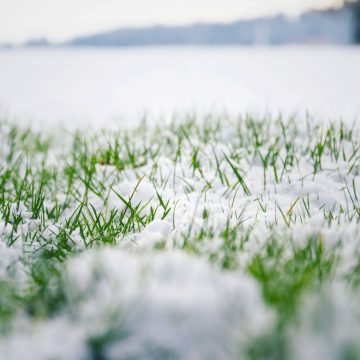When we talk about “winterizing sprinkler systems” it means basically removing all excess water from the pipes, valves, sprinkler heads, and other elements before freezing temperatures wreak havoc on your system. This is done most commonly by way of injecting compressed air through the system and blowing any water out leaving clear, dry, and ready-for-winter pipes and fittings. Once the water is removed, your system is prepped for the long, cold winter ahead.
When to Winterize Your Sprinkler Systems
Most service providers start winterizing sprinkler systems in early fall to allow plenty of time before frigid temperatures kick in. As a rule of thumb, you should try to schedule your winterization at least a week before overnight temperatures drop into the freezing range.
What if I DON’T Winterize my Sprinkler System?
If you don’t winterize your sprinkler system well in advance of the first seasonal freeze, you run the very real risk of water freezing and expanding inside the system and damaging pipes and/or sprinkler heads. When this occurs, you’re likely in store for major repair or replacement costs before your system becomes operable again. The best way to prevent winter damage and ensure your sprinkler system runs as it should next spring is to adhere to preventative maintenance including winterization.
Can I winterize my sprinkler system myself?
Yes, technically you can winterize your sprinkler system yourself. You can also install a roof yourself, fix an engine yourself, or replace a toilet yourself. The problem is if you lack the familiarity, knowledge, and experience necessary to tackle these projects single-handedly, you could make matters much much worse. And if this is the case, you might end up paying more for repairs than if you had just hired out the job in the first place. A lawn care professional will have the working knowledge of your system and the proper equipment to get the job done quickly, safely, and effectively.
When it comes to winterizing your irrigation system, we recommend partnering with an experienced irrigation professional (like Green Turf) and setting up an annual maintenance plan. That way, you don’t have to worry about a thing. We’ll handle winterizing in the fall, re-activating in the spring, as well as annual backflow testing which is required by all county ordinances (including St. Louis County). Your irrigation system is a major investment and can last upwards of 20 years with proper care and maintenance. But even the smallest oversight can mean big repair costs and, in the most extreme of cases, a new system altogether. Protect your investment and contact Green Turf to learn more about our annual maintenance and repair plans.

